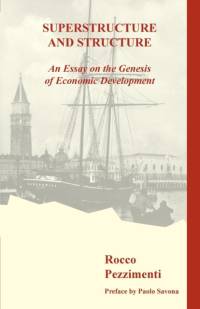Om Superstructure and Structure
Contrary to the view held by a number of contemporary economists, the conviction is fast gaining ground that before the socio-political situation can be changed it is first necessary to change the economic processes, these last being seen as the structure on which the superstructure is built (an interpretation shared by Karl Marx and Adam Smith, in different, though symmetrical, fashion). This book attempts to show that history in fact demonstrates, frequently, the opposite. England was able to experience the industrial revolution only after it had consolidated a revolution of rights. Indeed such has always been the case. Peace itself cannot be seen as the objective because it is actually a pre-condition, as the classic writers of the ancient and medieval world pointed out. The political field must thus recover both authority and autonomy from the economic sphere. What we need is dynamic order, without which there can be no progress. Another point emerges from thus study: many have adopted a negative and pessimistic attitude towards economic activity, asserting that it is only irrepressible human selfishness that creates private initiative. Yet from such initiative stems the well-being of society and the improvement of life. It is therefore in the interest of everyone that these aspirations are fulfilled within a legal framework. Lastly, uncertainty is a typical characteristic of human life and to the extent of being one of the components of everyday life. Because of this financial institutions such as insurance companies have grown up and these actually work with the nature of risk. This again demonstrates how unacceptable an anarchical-libertarian position is since through its uncertainty it brings with it risks that are not confined to the economy. However this study does not look forward to a world in which the positions are reversed and where politics can reach the point of stifling the economy.
Visa mer

